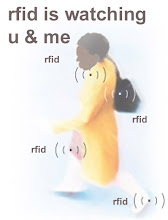It appears that Bill Cosby has been to school and has been coached well. He has reappeared with a sharp acknowledgment of the undeniable logical realization of systemic and institutionalized racism. Cosby has abandoned his irrational anti-intellectual squabbling to finally make a logical, rational, realistic assessment of the contextual reality of the systemic forces surrounding black behavior (at least from what I gather in these two video clips).
In his recent appearance on ‘Meet the Press’ Cosby provides his most, methodical, reserved, careful, and articulate explanation of his opinions to date. In his own words Cosby acknowledges that “The power structure can stop a person from getting a better education…living in better conditions…stop improvements from being made,” He also highlights the critical longstanding fact that white youth are the predominant consumers of derogatory, corporate influenced ‘hip-hop’ or gangster rap (although there's nothing gangster about it). It must be stressed that, white patronage of this negative portrayal of blacks provides corporate America with the economic incentive to keep producing more. It has been generally acknowledged by music scholars that there is a direct correlation between the growing mass interest and popularity of Hip Hop amongst white youth, and it’s general decline. A similar phenomenon has also occurred with the decline of Bee-Bop and Rock N Roll as both musical expressions gained popularity amongst white youth.
Hopefully, Cosby understands that the effects of this degenerative form of ‘Hip Hop’ or hip-hop (as I spell it) are two-fold. On the one hand white youth are attracted to the music because they are able experience this whimsical expression of black life vicariously as entertainment or as a pseudo, virtual, video game type of experience. They don’t directly relate to Hip Hop’s overwhelmingly black identity; therefore, they can psychologically disengage or escape this experience willfully, just like hitting the off button on the playstation. Whites in general are also more comfortable with the distorted clown, coon-type representations of black people as opposed to enduring the sight of serious artists like Immortal Technique, Jeru the Damaja or Dead Prez who offer real quantitative art that reflects positively on the negative. On the other hand, black youth simultaneously identify with hip-hop's blackness directly. They in-turn falsely interpret these same hip-hop images to be literal representations of black life. Most impressionable black youth are not mature enough to separate fact from fiction. The literal interpretation of these images in combination with the preexisting social-political-economic harshness and realities of post Slavery Amerika have contributed to making a bad situation worse. Recognize that the poverty that Grand Master Flash spoke of in his classic “The Message” record preceded “Hip Hop”.
Finally, Cosby suggests that black progressive action must take place under ordinary everyday life circumstances by ordinary people in his assertion that “the revolution is in their apartment, in their house, in their neighborhood.” Right on, but the upper class blacks must do their part as well. He has yet to capitalize on his high level of respectability and influence within the black community to equally condemn the upper class bourgeois blacks like Deborah Lee who profit from the entertainment industrial complex, which socializes, and conditions black children to become coffers of the Prison industrial complex. The complexities of which are captured beautifully in the film “Beyond Beats and Rhymes” and by Reverend Coates. Cosby will be on Oprah’s show tomorrow (10.17.07) promoting his book “Come on People” It is obvious that the book will ultimately be a self damning, introverted critique that will find blame laden within the black community, but at least Cosby is now acknowledging White Supremacy in soft terms (more so than he did before). I look forward to Cosby’s book, but I’m left to wonder who really wrote it.
On another note, be sure to check out the new, controversial documentary “What Black Men Think” and the blog. Perhaps, Microsoft can tell us what Black men think?
(((((HTP)))))








No comments:
Post a Comment